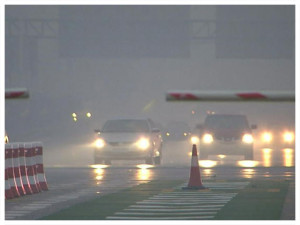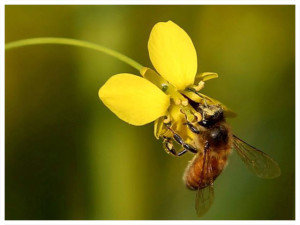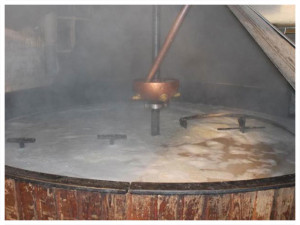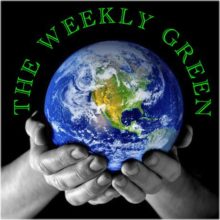MORE POOR
Just weeks before the UN international climate conference in Paris – which may, however, be postponed on account of the horrific events there – the World Bank has issued a report predicting that, all other things being equal, in 15 years there will be 100 million more poor people in the world as a consequence of climate change. According to the report, the increase will be largely driven by lower crops yields as a result of warmer temperatures – as much as a 5% drop by 2030 – and a corresponding 12% rise in food prices. The report also predicts other dire consequences of global warming, such as outbreaks of infectious diseases and natural disasters, but concludes that the tide may still be turned by proper political decisions and ingenious approaches.
AIRPOCALYSE
 Air quality in north-eastern China has reached a record low since China began to publicize air quality data three years ago. In the metropolis of Shenyang, people have trouble breathing and stinging eyes from the smog, already a fact of life there and now worsened by a significant increase in coal burning due to the start of winter. Visibility is down to 300 feet in some places. Authorities advise not to go outside and people that do so anyway are wearing dust masks or even gas masks.
Air quality in north-eastern China has reached a record low since China began to publicize air quality data three years ago. In the metropolis of Shenyang, people have trouble breathing and stinging eyes from the smog, already a fact of life there and now worsened by a significant increase in coal burning due to the start of winter. Visibility is down to 300 feet in some places. Authorities advise not to go outside and people that do so anyway are wearing dust masks or even gas masks.
HONEY HIGHWAY
 A highway in the Netherlands is about to become a paradise for honey bees. Wildflowers have been sown along a 4-mile stretch of highway still under construction in hopes to mitigate the disastrous honey bee die-off of the past decade. There are four factors contributing to the honey bees’ plight: a shortage of bee-keepers, infections from abroad, to which the domestic bees have no resistance, overuse of fertilizer and pesticides, and, by consequence, the reduction of food sources.
A highway in the Netherlands is about to become a paradise for honey bees. Wildflowers have been sown along a 4-mile stretch of highway still under construction in hopes to mitigate the disastrous honey bee die-off of the past decade. There are four factors contributing to the honey bees’ plight: a shortage of bee-keepers, infections from abroad, to which the domestic bees have no resistance, overuse of fertilizer and pesticides, and, by consequence, the reduction of food sources.
According to the Honey Highway Foundation, the banks and medians of highways are eminently suitable for bees, because, apart from nature preserves, they provide the only pesticide-free soil in the country.
44 native species of wildflowers which are very rich in nectar and pollen were selected in such a way that they will provide food for the bees over the larger part of the year.
VEGGIE BEEF
Recently the World Health Organization concluded that eating meat can have grave consequences for your health. Well, the University of Wageningen in the Netherlands has developed a vegetarian substitute made from legumes that is all but indistinguishable from the real thing in terms of texture. Also, it can be produced in chunks of several pounds, which is not possible with current meat substitutes, and production is 90% more energy-efficient as well. No data were published on the nutritional value of the product, called the ‘T-bean’, and it is expected it will be another 2 years before flavor is added.
LESS BEER
 Global warming is also impacting Belgian beer, such as lambik, krik and geuze. According to brewery Cantillon, the brewing season has shrunk by a month since 1950. Cooling newly-brewed beer outdoors at night in open vats heightens the effectiveness of the yeast and, therefore, the quality of the beer, but night temperatures have not fallen below 60 degrees lately and production had to be stopped.
Global warming is also impacting Belgian beer, such as lambik, krik and geuze. According to brewery Cantillon, the brewing season has shrunk by a month since 1950. Cooling newly-brewed beer outdoors at night in open vats heightens the effectiveness of the yeast and, therefore, the quality of the beer, but night temperatures have not fallen below 60 degrees lately and production had to be stopped.

